It’s rare for professors to use superlatives to describe their students. But in their nomination letters for the College of Arts & Sciences’ 2019 Dean’s Medalists and Graduate Medalists, adjectives like “remarkable” and “inspirational” are peppered throughout. Reading about the students’ accomplishments, it’s easy to understand why.
Each year, the College honors an undergraduate and graduate student from each of its four divisions as medalists, selected on the basis of academic performance and recommendations from faculty. Learn more about this year’s honorees.
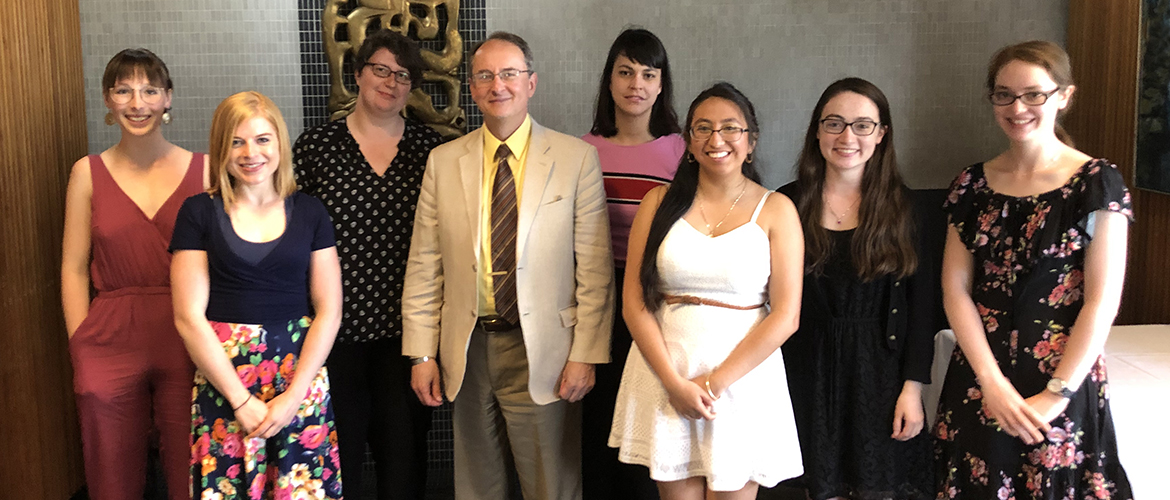
2019 A&S DEAN’S MEDALISTS
GRECIA LEAL PARDO
Dean’s Medalist in the Arts
BA, Drama, Classics
When Grecia Leal Pardo arrived at the UW, she immersed herself in the study of Latin and ancient Greek and wowed professors with her nuanced analysis of ancient texts. But she was equally passionate about drama. Fortunately she found ways to combine her two interests, directing plays from — or inspired by — the Classical period through the UW Undergraduate Theater Society.
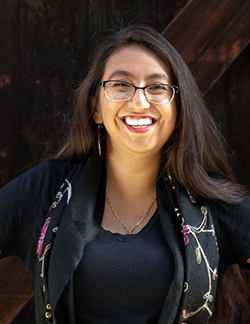
“Grecia not only combined her own interests in the most dynamic possible way but also brought her fellow students with her in exploration across fields and eras,” says Stephen Hinds, professor of classics. “What unifies these projects is a sustained focus on approaches to the ancient Greek world through usually marginalized voices.”
Pardo’s professors describe her as “remarkable” and “exceptional” as a scholar. Ruby Blondell, professor of classics and Lockwood Professor in the Humanities, says Pardo was “one of the most talented students I have known in my 34 years at the University. By her presence, she raises the intellectual level of the group, yet without the least hint of condescension or impatience.”
Despite two rigorous majors and involvement in theater productions, Pardo also found time for numerous other activities, including working with Neah Bay Elementary School classes through the UW Pipeline Project, serving as a teaching assistant at the Jose Marti Child Development Center, working as an undergraduate staff assistant for the Undergraduate Research Program, and participating in study abroad programs in Rome, Scotland, and Tahiti.
“Grecia is the kind of student that a major public university like ours exists to serve, to nurture and to inspire to great things,” says Hinds. “Those who have had the privilege of working with Grecia are in turn inspired by her.”
See a more in-depth profile of Grecia Leal Pardo here.
ASHLEY BEEMAN
Dean’s Medalist in the Humanities
BA, English, French
Ashley Beeman loves books. That makes sense given her double major in English and French. But unlike many of her peers, Beeman is drawn to volumes that are centuries old. For both of her majors, she has undertaken research projects that involve rare books in UW Libraries’ Special Collections, dating back to the sixteenth century.
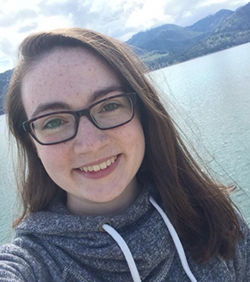
Given her interest in rare books, Beeman found the perfect campus job as a student, working in Special Collections. She also researched a collection of about 100 French books from the eighteenth and nineteenth centuries that had been donated to the Department of French & Italian Studies.
“In trying to figure out how to catalogue books so that we’d know what was in the small collection, I couldn’t think of a better person than Ashley to go through them, do some research into each, and write up a detailed, annotated bibliography,” says Geoffrey Turnovsky, associate professor of French. “She did a fantastic job and we are immensely grateful to her for this work, which has helped us understand this donation much better.”
It’s no surprise that Turnovsky chose Beeman for the research project. He describes her academic work as “remarkably advanced.” Jeffrey Knight, who had Beeman in two of his classes, is equally effusive. “Ashley is a student of the humanities in the truest and most undiluted sense,” says Knight, associate professor of English. “She doesn’t just take classes, she synthesizes them. She allows different disciplines and texts in different languages to reflect on each other and produce new insight.”
When not researching historical books or working in UW Special Collections, Beeman has focused on another of her interests: music. Her first year at the UW she played piccolo in the Husky Marching Band; for the remaining three years she performed flute and piccolo with the UW Symphonic Band.
HANNAH WERBEL
Dean’s Medalist in the Natural Sciences
BS, Computer Science
In addition to a demanding major in computer science, Hannah Werbel minored in physics and mathematics at the UW. Her academic accomplishments were recognized early with the University’s Freshman Medal. Outside of the classroom, she played the piccolo as part of the Husky Marching Band, earning the band’s Bill Bissel Memorial Award last year as the student who most embodies the band’s “touch of class” motto.
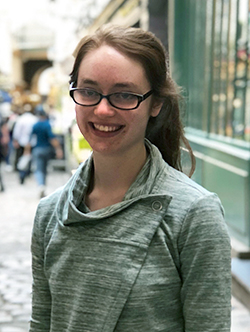
Accessibility was a centerpiece of Werbel’s time on campus. Legally blind herself, she served as president of the Washington Association of Blind Students all four years. She also worked as a student assistant for the DO-IT Center, which focuses on empowering people with disabilities to succeed through education and technology.
Werbel also excelled in research. She completed a summer research internship in the UW BioRobotics Lab during her junior year of high school, which led to an ongoing position when the internship ended. Werbel also spent two quarters as a teaching assistant for an introductory computer science class. In 2017, she was recognized with the Outstanding Female Engineer Award from the UW chapter of the Society of Women Engineers.
“Hannah is humble, intelligent, hard-working, and inspirational,” says Hank Levy, Director of the Allen School and Wissner-Slivka Chair. “She likely doesn’t quite know how special she is and how far her talent will take her, and I hope this recognition pushes her to even greater heights.”
Werbel will spend the summer as a research intern with Microsoft Quantum Computing before joining Facebook as a software engineer.
Adapted from a Paul G. Allen School of Computer Science & Engineering blog post.
HANNAH MARTENS
Dean’s Medalist in the Social Sciences
BA, Philosophy; Law, Societies & Justice
Some students ease into University-level academics, choosing introductory courses their first year. Not Hannah Martens. By the end of her freshman year she had taken several 400-level courses. Her sophomore year, she took two graduate seminars in philosophy—earning a grade of 3.9 in each. In addition to completing two majors, she completed minors in bioethics, disability studies, and ethics.
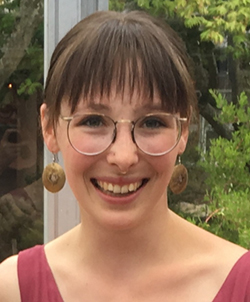
“Immensely sophisticated,” is how philosophy professor Carina Fourie, Benjamin Rabinowitz Chair in Medical Ethics, describes Martens’ work. Philosophy professor Sara Goering, recognizing Martens’ exceptional abilities, invited her to join a Center for Neurotechnology neuroethics research group made up of faculty, postdocs, and graduate students. The group does groundbreaking work on ethical issues concerning autonomy, agency, and identity for individuals using neural technologies to restore their motor, sensory, or psychiatric functioning. From that work, Martens has had two short bioethics research papers published as first author, working in coordination with a more senior member of the research team.
Martens also found time to participate in a study abroad program in South Africa that focused on health and disabilities, as well as summer programs in philosophy at MIT and UC San Diego designed to increase the diversity of the field of philosophy. Martens also tutored at two writing centers in the College of Arts & Sciences: the Philosophy Writing Center, and the Political Science/Jackson School of International Studies/Law, Societies & Justice Writing Center.
As a first-generation student from a low income background, Martens had to learn the ropes of academic life on her own, making her accomplishments all the more impressive. “Out of these challenges, she has emerged a capable, empathetic, exuberant, deeply inquisitive young woman,” says Andrea Woody, professor and chair of the Department of Philosophy.
This fall Martens will enter a PhD program in philosophy at the University of Illinois Chicago.
2019 A&S GRADUATE MEDALISTS
JACKIE GRANGER
Graduate Medalist in the Arts
MFA, Photomedia
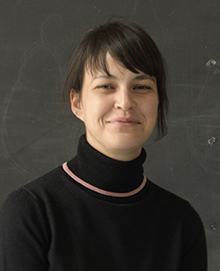
“Eclectic, original, conceptually bold, and visually compelling.” That is how Rebecca Cummins, professor and chair of photomedia in the School of Art + Art History + Design, describes the artwork of Jackie Granger. “It has been impressive to watch the trajectory of her practice as she experiments with a range of materials and traditions, often enlisting humor or irony to undermine historical and cultural assumptions,” says Cummins.
Granger brings a commitment to inclusion and diversity to her work. This is evident in her interactions with fellow artists and as a teaching assistant in photomedia, “She looks out for those with less power or privilege,” says Cummins, adding “Jackie is a risk taker, and a true believer in the power of art.”
VERENA KICK
Graduate Medalist in the Humanities
PhD, Germanics
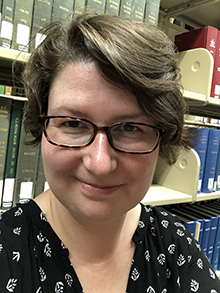
Verena Kick’s dissertation focuses on the use of photobooks, which combine visual and textual materials in innovative ways, in Weimar Germany. Through critical analysis of the work of three authors of photobooks, she shows how the realm of the public sphere changed dramatically between the world wars and opened up to new and critical voices. Kick’s work “contributes to a more refined understanding of the Weimar period and its struggle with tradition and innovation,” says Sabine Wilke, professor of German and Joff Hanauer Distinguished Professor in Western Civilization.
Kick herself has no such struggle with innovation. She emerged as a leader in advocating for the digital humanities at the UW, exploring the potential for digital tools to enhance humanities research. “Verena is one of the most thoughtful practitioners in this field, who seeks to develop meaningful applications where the critical work that we do in the humanities is amplified and strengthened by the digital component,” says Wilke.
Kick will join the faculty of Georgetown University this fall as an assistant professor of German.
ELIZABETH NEILSON
Graduate Medalist in the Natural Sciences
PhD, Psychology
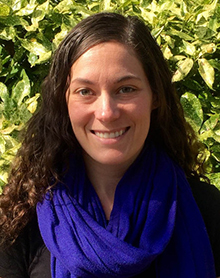
Elizabeth Neilson aims to understand the factors that contribute to male sexual aggression, including the impact of alcohol intoxication and emotional arousal and regulation. Her research has been published in more than a dozen publications, and she has received awards from the Research Society on Alcoholism and the Association for the Treatment of Sexual Abusers, as well as a National Research Service Award from the National Institute on Alcohol Abuse and Alcoholism. Her clinical training has emphasized treating recent sexual violence survivors and returned veterans with PTSD and substance abuse disorders.
“Lizzie tops the charts on all the skill sets necessary to excel at academia, and she is a highly skilled and highly experienced clinician, to boot,” says her advisor and research mentor William George, professor of psychology. “Her expertise in the fields of sexual assault and evidence-based psychotherapy are well-known among the faculty, as evidenced by the numerous requests to guest lecture in our courses.”
Neilson will join the faculty at Morehead State University in Kentucky as an assistant professor this fall.
CHRISTINE LEIBBRAND
Graduate Medalist in the Social Sciences
PhD, Sociology
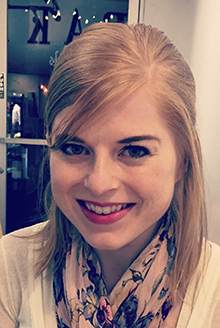
Christine Leibbrand tackles questions that have broad implications for society and public policy. Her master’s thesis explored the relationship between parents having non-standard work schedules and their children’s behavioral outcomes. Her dissertation research focused on internal migration within the United States, and the reasons for its decline in recent decades. Leibbrand has collaborated with faculty on other research projects as well, including a study of the relative well-being of children whose parents left the South during the Great Migration.
“By their very nature, these projects require expertise in the intersectionality of race, gender, and economic standing,” says collaborator Stewart Tolnay, S. Frank Miyamoto Professor Emeritus of Sociology. “In addition to this formidable substantive foundation, Christine brings a powerful methodological toolkit to her research program.”
Leibbrand’s research has already been published in numerous prestigious journals in her field. But that’s just the start, says collaborator Kyle Crowder, Blumstein-Jordan Professor of Sociology. “Christine’s broad expertise and ability to recognize the potential for exploration at the intersection of seemingly disparate theoretical arguments leads me to believe that her best work is still ahead of her,” he says.
More Stories

AI in the Classroom? For Faculty, It's Complicated
Three College of Arts & Sciences professors discuss the impact of AI on their teaching and on student learning. The consensus? It’s complicated.

What Students Really Think about AI
Arts & Sciences weigh in on their own use of AI and what they see as the benefits and drawbacks of AI use in undergraduate education more broadly.

A Love of Classics and Ballroom
Michael Seguin studied Classics at the UW and now owns Baltimore's Mobtown Ballroom. The two interests, he says, are more connected than they might seem.